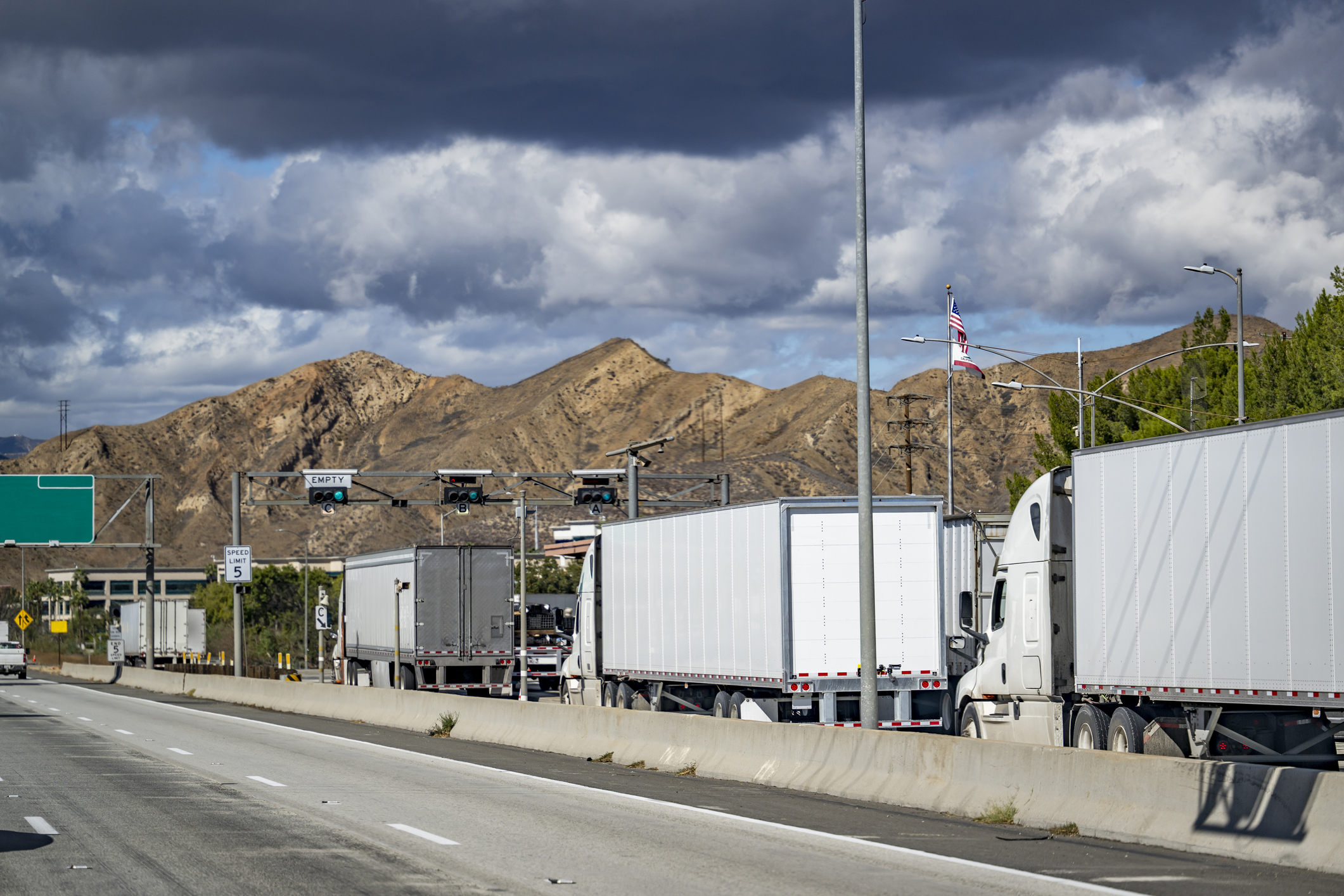How Curb Weight, Gross Weight, and Gross Vehicle Weight Rating Impact Your Fleet

For fleet managers, understanding the specifics of vehicle weights — curb weight, gross weight, and gross vehicle weight rating (GVWR) — is crucial, as they play a significant role in a vehicle’s safety, performance, fuel efficiency, and compliance.
Vehicle weights are more than just numbers. For effective fleet operations, paying close attention to them should be a top priority for fleet managers and also for drivers. Knowledge of the differences between weights can provide valuable insights into fleet operations that drive profitability and give you a better understanding of the vehicles you operate.
Vehicle Weights: What They Mean and How They Impact Your Fleet Operations
Navigating the various vehicle weight specifics can be daunting and confusing. To simplify the process, the following is a “Vehicle Weights 101” that covers definitions of the vehicle weights that fleet managers and drivers need to know and how each impacts fleet operations.
Curb Weight
Curb weight is the total weight of a vehicle and includes standard equipment and required fluids, such as fuel, motor oil, coolant, and brake fluid. It acts as a baseline measurement and is the base weight of a vehicle when it’s empty — no cargo and no passengers — and ready to drive.
Curb weight can directly impact fleet operations in many ways, including:
- Fuel Efficiency: Curb weight is key to a vehicle's fuel efficiency. Higher curb weight vehicles typically consume more fuel than vehicles with a lower curb weight. Knowing the curb weight of each vehicle in your fleet allows you to make more informed decisions regarding fuel consumption, fuel budgeting, and vehicle choices.
- Power: Vehicles with lower curb weight have an acceleration advantage over heavier curb weight vehicles. Because of their lower mass, vehicles with lower curb weight have less inertia to overcome, which means faster acceleration.
- Payload Capacity: Knowing the curb weight is essential for determining a vehicle's payload capacity — the maximum amount of weight it can safely carry. Overloading can lead to safety issues, increased maintenance and fuel costs, and potential fines or penalties.
Gross Weight
Gross weight — curb weight + payload — is the weight of a vehicle when it’s loaded with everything it can safely carry, including passengers, cargo, and anything else that’s onboard a vehicle.
Understanding gross weight is important as it plays a key role in many aspects of fleet operations and management, including:
- Safety: A vehicle carrying more than its gross weight can compromise vehicle stability, handling, and braking capabilities —putting the safety of the driver, passengers, and other motorists at risk and increasing the chances of an accident. Knowing the gross weight of a vehicle allows more informed decision-making about cargo loads, which helps maintain safe vehicle operation throughout your fleet.
- Compliance: Knowing gross weight is essential for ensuring compliance with various legal regulations and for avoiding fines, penalties, and legal consequences. Gross weight is legally regulated. It’s unlawful to operate a vehicle that’s over its gross weight.
- Maintenance: In addition to reducing the lifespan of a vehicle, overloading can lead to an increase in wear and tear on a vehicle’s components such as the engine, suspension, tires, and brakes.
- Fuel Efficiency: Heavier vehicles consume more fuel, which increases operating costs. By monitoring the gross weight of fleet vehicles, you can optimize fuel efficiency, reduce operating expenses, and minimize the environmental impact of your fleet.
GVWR
GVWR is a standardized measurement specified by the vehicle manufacturer based on a vehicle’s design and capabilities. It also determines the maximum total weight a vehicle is rated to safety carry. Exceeding the GVWR number puts you and the vehicle’s performance at risk.
GVWR includes everything — the vehicle’s weight and the weight of the passengers, cargo, and any other equipment. Knowing the GVWR number is important because it impacts the following:
- Compliance: Exceeding GVWR can result in fines ranging from hundreds to thousands of dollars, the driver being personally ticketed or arrested, impounding or towing the vehicle, and your company being held liable in the case of an accident.
- Safety: Exceeding GVWR can affect braking and steering and increase the chances of an accident since overloading causes increased wear and tear on tires, suspension, and brakes.
- Vehicle Selection: GVWR should be taken into consideration when selecting fleet vehicles. Selecting vehicles with appropriate GVWR for the expected payload is vital for operational efficiency, productivity, and safety. GVWR should also be considered when upfitting or modifying vehicles since modifications to the vehicle affect its weight.